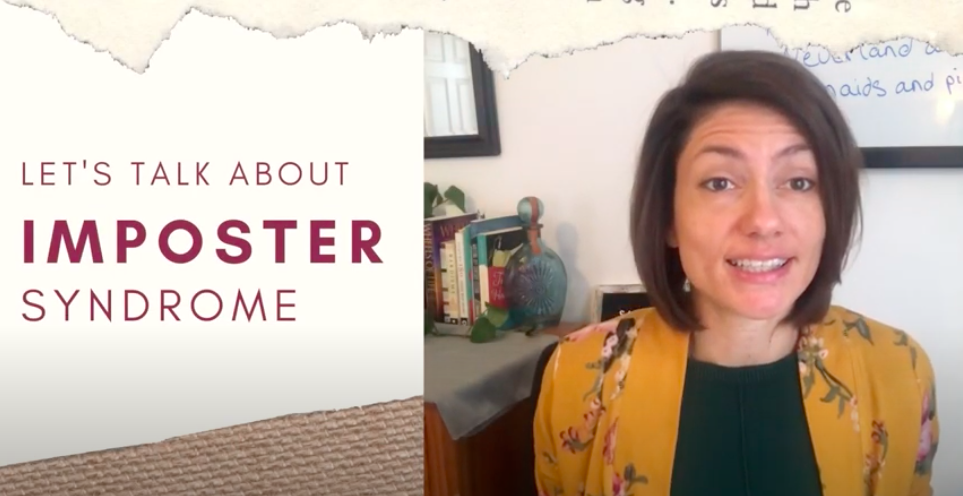
Renaming Imposter Syndrome In Order to Fight It
Let’s talk about Imposter Syndrome. I have a theory on how to fight it that I want to share with you.
What Is Imposter Syndrome?
If you’re an artist or a writer, you’re probably super familiar with imposter syndrome, but it’s not only something that impacts creators. If I had to guess, I’d say it probably impacts everyone at one point in their life. This is why I wanted to talk about it.
We’re all familiar, but let’s define it. It says on the interwebs that imposter syndrome is:
An internal experience of believing that you are not as competent as others perceive you to be.
So that’s good. It means others perceive you as competent. But that doesn’t mean anything unless we believe it about ourselves.
When we’re experiencing imposter syndrome, we’re going to feel overcome with self-doubt, fear, and might even shut down. While we might feel excited and confident about something one day, we might feel like we don’t deserve to be doing the thing we’re doing the next.
I feel it when I do my videos or write my blogs. But I move past it.
The other piece I want to point out is the syndrome part of it.
The definition of syndrome is:
A group of signs and symptoms that occur together and characterize a particular abnormality or condition.
So a syndrome is a condition. When you’re saying that you have a syndrome you’re saying you you have a condition and that is something that sticks with you, that you can’t get rid of. One thing I don’t mention in the video is a second definition of “condition” —
A set of concurrent things, such as emotions or actions, that form an identifiable pattern.
When we consistently say we have imposter syndrome, we are experiencing emotions and actions that will form a pattern. The more we think it, the more normal it will become.
So, when we’re saying we have Imposter Syndrome, we’re giving it a lot of power we’re giving ourselves this syndrome, we’re stuck with this thing that is basically like a sickness. It’s really hard to beat something like that.
Renaming Imposter Syndrome
So I wanted to put this out there.
I think we should rename it and call it Imposter Tendencies.
When you have imposter tendencies, every now and then you’re gonna feel like an imposter. You have a tendency to worry that people don’t believe in you, that people don’t see you or perceive you as competent.
And because it’s just a tendency, it happens every now and then, it’s much easier to beat and push past than that syndrome. So, whenever you’re thinking, “I have imposter syndrome,” I want you to start thinking about it in terms of, “I have imposter tendencies, I have the tendency to sometimes think I’m not as competent as people think, but it’s not true. So I’m going to push past it and just be confident, and be as competent as people see me.
And actually, you know what, let’s not even use the word, “have.” Let’s not give ourselves this thing. It does not belong to us.
Let’s say, “Sometimes, I experience imposter tendencies.”
When we name things, we give them a lot of power and name. We’ll give it a lot of power.
Don’t say:
- I am an imposter
- I have imposter syndrome
- I suffer from imposter syndrome
- I have imposter tendencies
Instead, say:
- I have the tendency to feel like an imposter
- Once in a while, I experience imposter tendencies
- I experience imposter tendencies but know I am not an imposter
- I am authentic
Maybe these small changes, changing the way you talk about this thing, will help you reframe your brain, look at things in a different way, and really start to push past that imposter feeling that sometimes starts to sneak in.
So that’s my challenge to all of you today. The next time you’re thinking about imposter syndrome and you’re worried that you have it, change the name, call it imposter tendencies and see how that impacts the way you think about it and the way it makes you feel.
If you want more tips on how to Thrive, you can subscribe to my YouTube channel. If you want to have more conversations around thriving, you can join my Facebook Group.